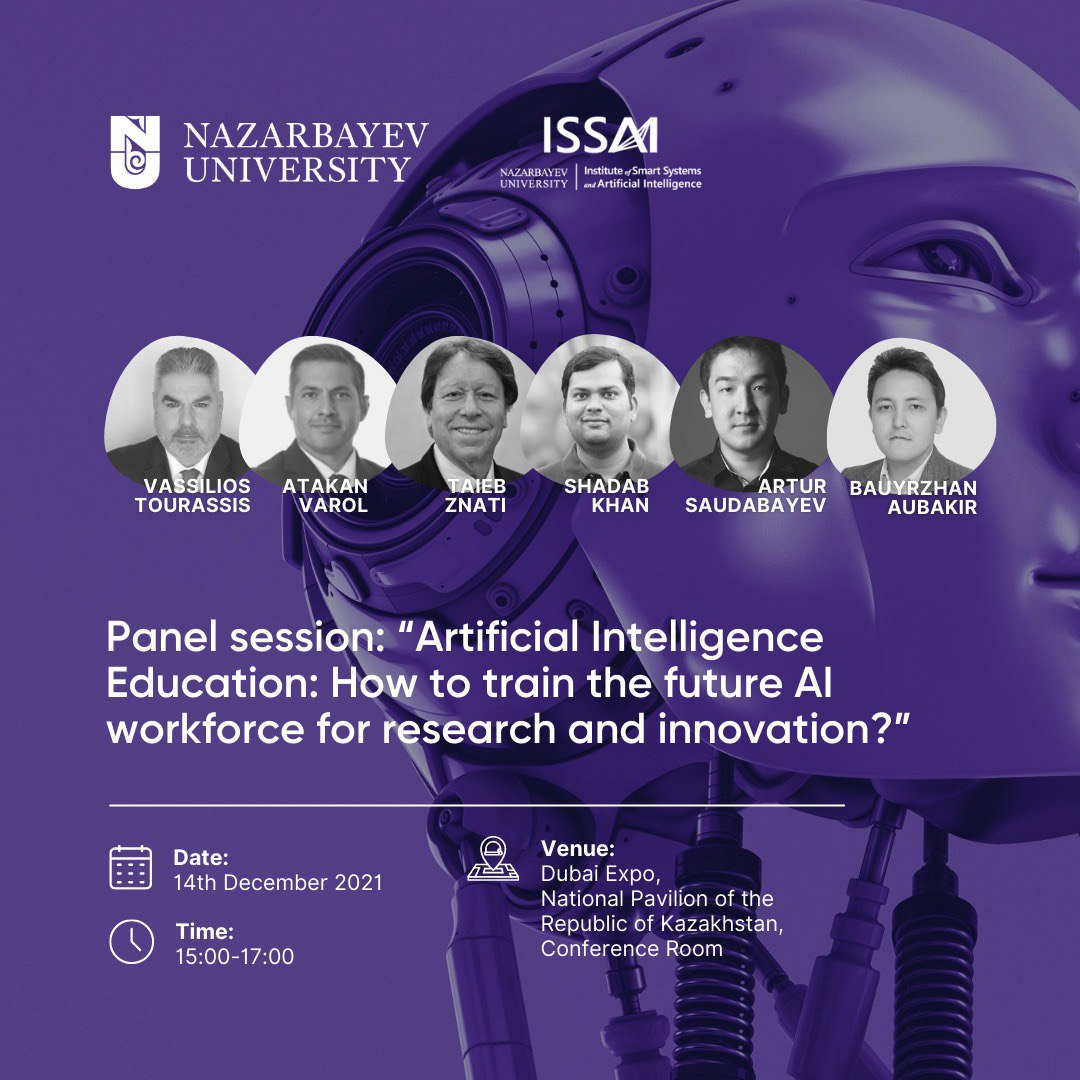On 14th December 2021, Nazarbayev University Institute of Smart Systems and Artificial Intelligence (NU ISSAI) organized a Panel Discussion Session “Artificial Intelligence Education: How to train the future AI workforce for research and innovation?”. The event was held at the National Pavilion of the Republic of Kazakhstan at the EXPO 2020 Dubai within the framework of the 30th anniversary of Independence the Republic of Kazakhstan. The session was hosted both in-person and online.
In the first part of the event, ISSAI founding director Dr. Atakan Varol presented ISSAI research projects and shared Institute’s expertise in the fields of Data Science, Smart Systems and AI.
The presentation was followed by a discussion session moderated by Dr. Vassilios Tourassis, Dean of the Nazarbayev University School of Engineering and Digital Sciences. The distinguished panel of AI experts included Dr. Taieb Znati, Professor and Dean of the College of Information Technology, United Arab Emirates University (UAEU), Dr. Shadab Khan, Head of AI and Applied Sciences, G42, Artur Saudabayev, co-founder and chief technical officer of Causaly Inc., and Bauyrzhan Aubakir, director of analytics and data science department, “First Heartland Jusan Bank”.
Speakers talked about the essential skills and knowledge necessary for the AI leaders of tomorrow, the importance of having a systemic approach to the development of AI ecosystems, and the significance of having soft and humanities skills, as well as the readiness to constantly adapt your knowledge to keep up with the latest trends.
“AI leaders of tomorrow will be part of big inter-disciplinary teams, large teams coming together to co-create the solutions. Therefore, social and behavioral skills are important”, – said Dr. Shadab Khan, – “When we recruit new interns or full-time employees, apart from the technical skills, we would also like to see a learning mindset. There is a need to have talents who are not afraid to go beyond boundaries of their training program, who show enthusiasm and excitement in their work domain”.
Dr. Atakan Varol stressed the importance of a constant update of the university academic programs in the areas of AI and robotics, and the problem of universities being slowly changing conservative organizations.
“Course materials at universities need to change every year as AI is a rapidly changing technological field. New topics are not yet in the books, new topics are in conference proceedings which has happened 3-4 months ago.” – opined Dr. Varol.
In addition, Dr. Varol has raised the issue of a dilemma of teaching vs research track faculty: an emerging dichotomy in research universities. Since the field of AI is evolving rapidly, the only way to stay up to date is to conduct active research. Teaching track faculty knowledge will get outdated in a few years. Therefore, Dr. Varol proposed a student-centered project-based education by research active faculty members as a solution to this problem.
“AI education for future AI creators must happen in AI research institutes which focus on AI-intensive research. Full-scale universities which have the AI research institutes will succeed in future.” – said Dr. Varol.
Furthermore, panel speakers actively participated at the Q&A session where among the covered topics were a gender gap in the AI and technology industry, and prevention of biased AI.
The session was attended by more than 400 registered participants from around the globe.
The recording of the session can be found here.



